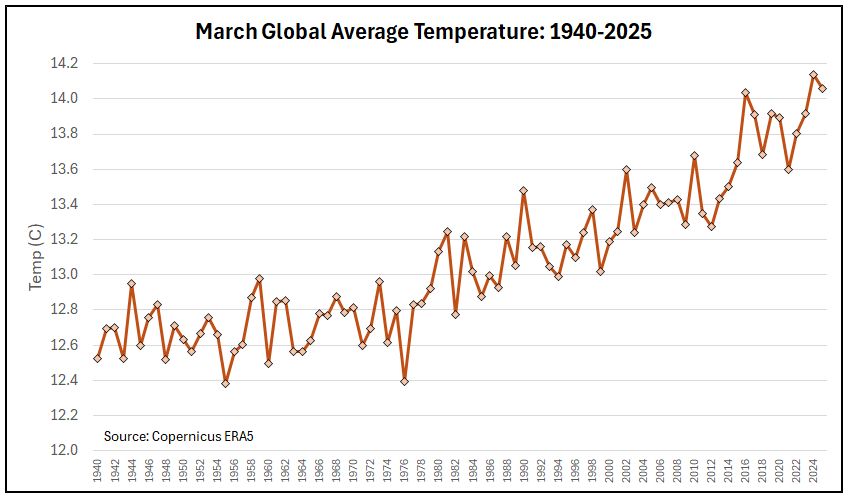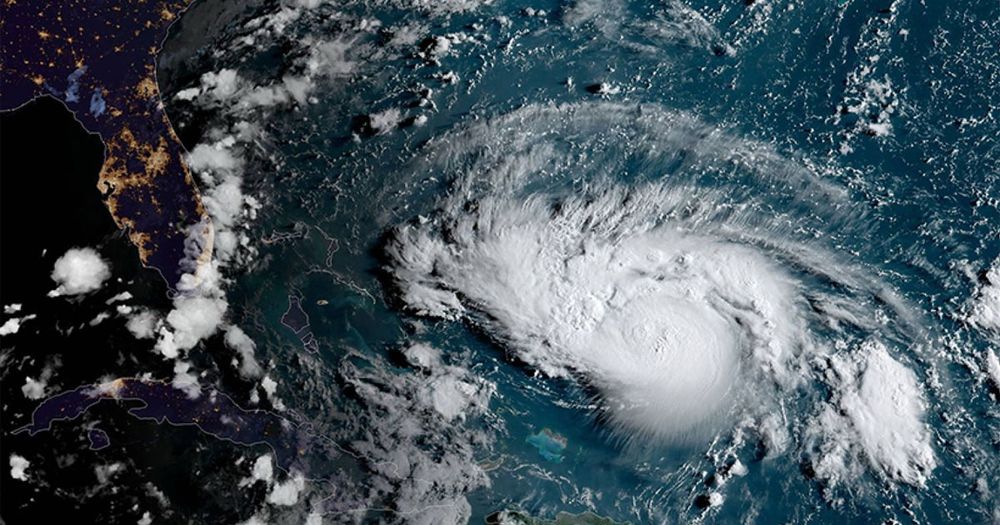
https://www.ceam.es/persona/francisco-juan-pastor-guzman/
🌍 A escala global, los once años más cálidos de la serie han sido los once últimos.
Una muestra clara de que el calentamiento global continúa.
🔗 climate.copernicus.eu/global-clima...
@ecmwf.int

🌍 A escala global, los once años más cálidos de la serie han sido los once últimos.
Una muestra clara de que el calentamiento global continúa.
Data from the Met Office, @uniofeastanglia.bsky.social and @ncas-uk.bsky.social shows 2025 was 1.41 °C above the average for 1850-1900.
Read more 👉 bit.ly/3NkfQH9

Data from the Met Office, @uniofeastanglia.bsky.social and @ncas-uk.bsky.social shows 2025 was 1.41 °C above the average for 1850-1900.
Read more 👉 bit.ly/3NkfQH9
Data from the #CopernicusClimate service show that 2025 was the third-warmest year on record. Explore key findings, charts and data from the report.
Start here: climate.copernicus.eu/global-clima...
@ecmwf.int

Data from the #CopernicusClimate service show that 2025 was the third-warmest year on record. Explore key findings, charts and data from the report.
Start here: climate.copernicus.eu/global-clima...
@ecmwf.int
@ecmwf.int
⬇️



@ecmwf.int
⬇️
The 1st FutureMed Workshop & Training School is underway in Chania, Crete 🇬🇷
📅 29 Sept – 3 Oct
📍 Main Hall, Training School
Workshops, lectures, and hands-on training for a better Mediterranean future 🌊🌍
#FutureMed #Crete #EUScience #TrainingSchool

The 1st FutureMed Workshop & Training School is underway in Chania, Crete 🇬🇷
📅 29 Sept – 3 Oct
📍 Main Hall, Training School
Workshops, lectures, and hands-on training for a better Mediterranean future 🌊🌍
#FutureMed #Crete #EUScience #TrainingSchool
This week, @ceammeteo.bsky.social team members have participated in the @futuremedaction.bsky.social First Workshop and Training School.
Samira Khodayar opened the FutureMed Workshop as Chair of the COST Action.
Follow the thread for the rest of our contribution to this amazing event ⬇️

This week, @ceammeteo.bsky.social team members have participated in the @futuremedaction.bsky.social First Workshop and Training School.
Samira Khodayar opened the FutureMed Workshop as Chair of the COST Action.
Follow the thread for the rest of our contribution to this amazing event ⬇️
Follow thread 1/5 👇
Follow thread 1/5 👇
www.ceam.es/es/news/las-...

www.ceam.es/es/news/las-...
Our new study published in Environment Int and led by Carmen Iñiguez and myself from the MCC Research Network.
#HotNights #ClimateHealth #climatechange

Our new study published in Environment Int and led by Carmen Iñiguez and myself from the MCC Research Network.
#HotNights #ClimateHealth #climatechange

Our Q1 2025 global weather video is now live, showcasing storms & cloud patterns across the planet in just 5 mins.
Created through international collaboration, this visualisation reveals how major weather events unfolded worldwide. Watch here: youtu.be/FZzK0FQ7nxI

Our Q1 2025 global weather video is now live, showcasing storms & cloud patterns across the planet in just 5 mins.
Created through international collaboration, this visualisation reveals how major weather events unfolded worldwide. Watch here: youtu.be/FZzK0FQ7nxI
Apúntate, todavía quedan plazas‼️
@mncn-csic.bsky.social @igeociencias.bsky.social @aemet.es
#cambioclimatico #dana #clima




Apúntate, todavía quedan plazas‼️
@mncn-csic.bsky.social @igeociencias.bsky.social @aemet.es
#cambioclimatico #dana #clima


doi.org/10.1016/j.je...
doi.org/10.1016/j.je...


📈 Time lapse of daily global temperatures in 2024 – @theguardian.com
📈 Surface air temperature anomaly map for January 2025 – @euclimateaction.bsky.social
📈 Global surface air temperature anomalies for January – #C3S



📈 Time lapse of daily global temperatures in 2024 – @theguardian.com
📈 Surface air temperature anomaly map for January 2025 – @euclimateaction.bsky.social
📈 Global surface air temperature anomalies for January – #C3S
www.lavanguardia.com/natural/2025...

www.lavanguardia.com/natural/2025...
secure.ucsusa.org/a/2025-prote... 🌎🧪🦑🐠

secure.ucsusa.org/a/2025-prote... 🌎🧪🦑🐠
If you are interested in working with extreme events and precipitation scenarios in the Mediterranean basin, please apply at ceam.fundanetsuite.com/Convocatoria...
#sciencejob #weatherjob
If you are interested in working with extreme events and precipitation scenarios in the Mediterranean basin, please apply at ceam.fundanetsuite.com/Convocatoria...
#sciencejob #weatherjob
https://climatica.coop/temperatura-mar-mediterraneo-record-inicio-2025/

https://climatica.coop/temperatura-mar-mediterraneo-record-inicio-2025/


